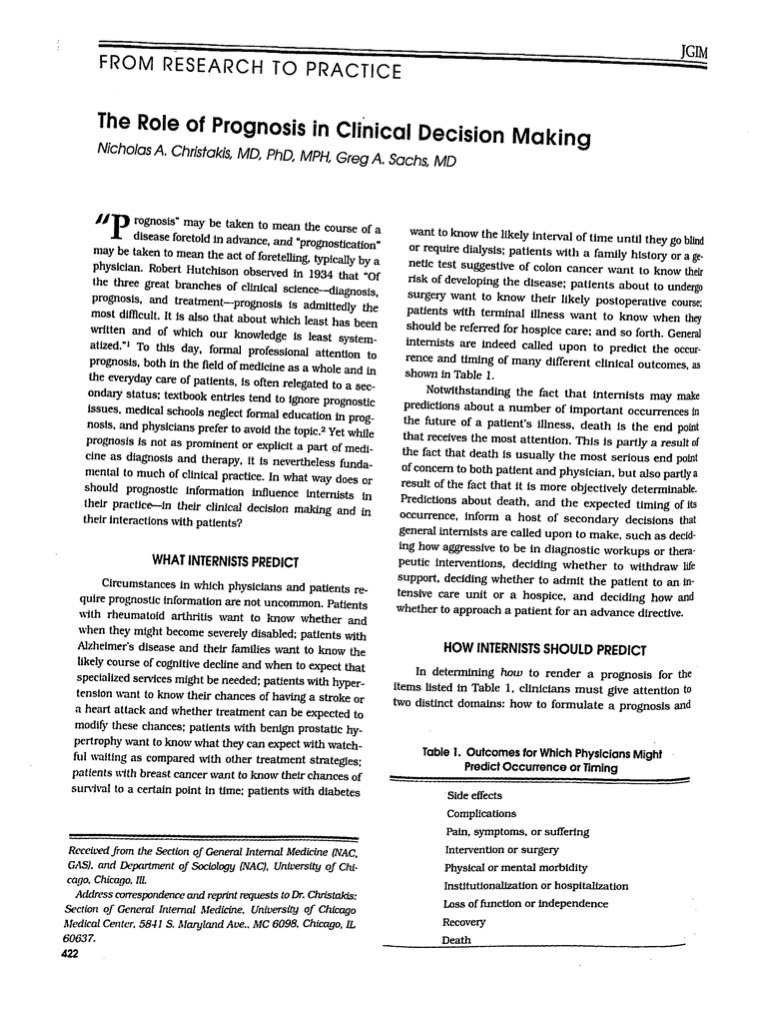
The Role of Prognosis in Clinical Decision Making
Abstract
"Prognosis" may be taken to mean the course of a disease foretold in advance, and "prognostication" may be taken to mean the act of foretelling, typically by a physician. Robert Hutchison observed in 1934 that "Of the three great branches of clinical science-- diagnosis, prognosis, and treatment-- prognosis is admittedly the most difficult. It is also that about which least has been written and of which our knowledge is least systematized." To this day, formal professional attention to prognosis, both in the field of medicine and as a whole in the everyday care of patients, is often relegated to a secondary status; textbook entries tend to ignore prognostic issues, medical schools neglect formal education in prognosis, and physicians prefer to avoid the topic. Yet while prognosis is not as prominent or explicit a part of medicine as diagnosis and therapy, it is nevertheless fundamental to much of clinical practice. In what way does or should prognostic information influence internists in their practice-- in their clinical decision making and in their interactions with patients?
Citation:
N.A. Christakis and G.A. Sachs, "The Role of Prognosis in Clinical Decision Making" Journal of General Internal Medicine, 11(7): 422-425 (July 1996)